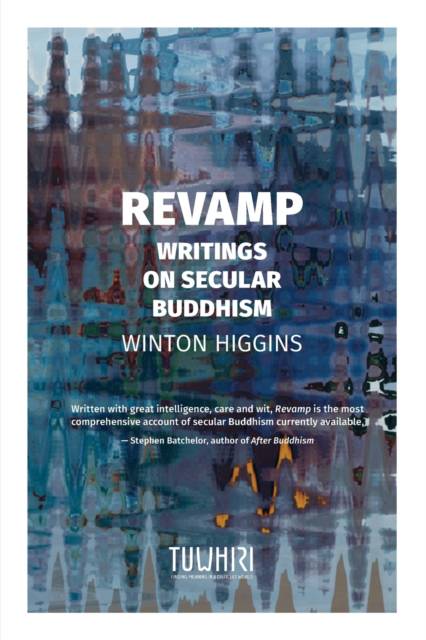
- Afhalen na 1 uur in een winkel met voorraad
- In januari gratis thuislevering in België
- Ruim aanbod met 7 miljoen producten
- Afhalen na 1 uur in een winkel met voorraad
- In januari gratis thuislevering in België
- Ruim aanbod met 7 miljoen producten
Omschrijving
A living tradition, Buddhism began as a way of working with the difficulties we all face as mortal, vulnerable, conscious beings. Its founder imbued this practice with an ethic of care, and teachings we can use today to interpret our experience and as a guide to full human flourishing.
Since the Buddha's death, the dharma has been expressed in many ways in different cultural settings, and often these border crossings enriched it. But when the dharma appeared in religious guise, it became burdened with cosmic beliefs, its practice regimented, and was used as an instrument of social control, stifling the freedom at its heart.
Secularity encourages a search for the good life in today's circumstances, not as prescribed by timeless myths. As part of the process of the dharma putting down roots in the west, secular Buddhism offers the vitality of the early dharma, free of religious distortions.
Winton Higgins tracks the emergence of secular Buddhism with a focus on today's climate emergency and intensifying social injustice that cry out for radical socioeconomic and political change. The ethic of care that underpins a creative dharma practice, he suggests, calls on us to bring our training to bear on these urgent tasks.
Specificaties
Betrokkenen
- Auteur(s):
- Uitgeverij:
Inhoud
- Aantal bladzijden:
- 252
- Taal:
- Engels
Eigenschappen
- Productcode (EAN):
- 9780473571399
- Verschijningsdatum:
- 26/04/2021
- Uitvoering:
- Paperback
- Formaat:
- Trade paperback (VS)
- Afmetingen:
- 152 mm x 229 mm
- Gewicht:
- 340 g

Alleen bij Standaard Boekhandel
Beoordelingen
We publiceren alleen reviews die voldoen aan de voorwaarden voor reviews. Bekijk onze voorwaarden voor reviews.









